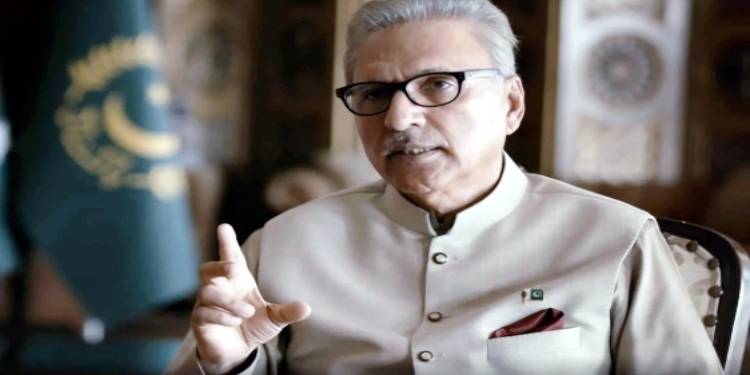
President Dr. Arif Alvi has once again sent back the Supreme Court (Practise and Procedure) Bill, 2023, without signing it.
The president stated in a notification that the "highest judicial forum of the country is currently hearing arguments regarding the competence of the legislation and the legality of the measure." "Therefore, no further action is necessary for deference to the same."
According to Law Minister Azam Nazeer Tarar, the measure would become law on April 20, even though the president declined to sign it.
In the midst of a dispute between the government and the judiciary over elections in Punjab and Khyber Pakhtunkhwa, the law was passed by both the National Assembly and the Senate last month, and it was then forwarded to the president for approval.
However, President Alvi sent the bill back to the parliament for review, claiming that it "travels beyond the competence of parliament" and might be criticized as "colorable legislation" in its initial form.
Despite vehement opposition from the Pakistan Tehreek-e-Insaf (PTI), the administration managed to approve the law in a joint session of parliament on April 10, and it was then sent once again to the president for signature.
According to the Constitution, if the president does not ratify a piece of legislation within ten days following a joint session of parliament passing it, it will be assumed to have been given. On Monday, Law Minister Tarar reaffirmed this.
On April 13, an eight-member Supreme Court panel reviewing petitions challenging the bill said that even if the president were to sign it, no further action would be taken on it until further order.
Chief Justice of Pakistan (CJP) Umar Ata Bandial presided over the bench, which also included Justices Ijaz ul Ahsan, Munib Akhtar, Sayyed Mazahar Ali Akbar Naqvi, Muhammad Ali Mazhar, Ayesha A. Malik, Syed Hasan Azhar Rizvi, and Shahid Waheed.
The president stated in a notification that the "highest judicial forum of the country is currently hearing arguments regarding the competence of the legislation and the legality of the measure." "Therefore, no further action is necessary for deference to the same."
According to Law Minister Azam Nazeer Tarar, the measure would become law on April 20, even though the president declined to sign it.
In the midst of a dispute between the government and the judiciary over elections in Punjab and Khyber Pakhtunkhwa, the law was passed by both the National Assembly and the Senate last month, and it was then forwarded to the president for approval.
However, President Alvi sent the bill back to the parliament for review, claiming that it "travels beyond the competence of parliament" and might be criticized as "colorable legislation" in its initial form.
Despite vehement opposition from the Pakistan Tehreek-e-Insaf (PTI), the administration managed to approve the law in a joint session of parliament on April 10, and it was then sent once again to the president for signature.
According to the Constitution, if the president does not ratify a piece of legislation within ten days following a joint session of parliament passing it, it will be assumed to have been given. On Monday, Law Minister Tarar reaffirmed this.
On April 13, an eight-member Supreme Court panel reviewing petitions challenging the bill said that even if the president were to sign it, no further action would be taken on it until further order.
Chief Justice of Pakistan (CJP) Umar Ata Bandial presided over the bench, which also included Justices Ijaz ul Ahsan, Munib Akhtar, Sayyed Mazahar Ali Akbar Naqvi, Muhammad Ali Mazhar, Ayesha A. Malik, Syed Hasan Azhar Rizvi, and Shahid Waheed.

